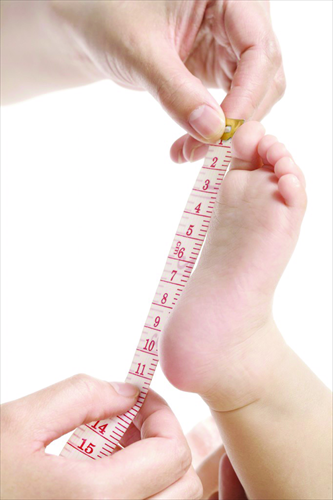Keeping the doctor away
Strategies for general well-being mean fewer trips to the hospital

By adopting a healthier diet and regularly exercising, the likelihood of falling ill is greatly reduced. Photo: IC
"I cried a lot today," wrote 27-year-old new mother Zhai Chen, adopting the point of view of her infant daughter. "I've gained 750 grams of weight since last month. I prefer being fed with infant formula imported from the Netherlands - in comparison, my mother's breast milk seems quite dull."
Zhai has been keeping a diary like this ever since giving birth. Each entry is written from the perspective of her now 2-month-old daughter, and records every physical change in her brief life thus far.
Zhai has also been keeping a notebook with detailed records about changes in her own physical condition throughout her pregnancy.
"Every time I go to the hospital, I copy down the questions that the doctor asks me, and keep a record of the results," said Zhai. "The doctors told me I'm the most earnest pregnant woman they had ever seen."
These personal health records are part of a deliberate effort by Zhai to monitor and manage her own well-being. She is following in the footsteps of her sister, who was similarly diligent about recording her son's physical condition when she gave birth.
"One time, her son suddenly started vomiting. The doctor read through my sister's diary, and from what she had recorded, correctly diagnosed that her son had a gastrointestinal tract obstruction," said Zhai.
Zhai and her sister's conscientiousness about keeping records of their own health and that of their children's are part of a wider movement that is gaining popularity in China called jiankang guanli, which can be roughly translated as "health maintenance."
The idea behind health maintenance is to maintain general well-being at all times. One's physical condition is constantly monitored, so rather than having to resort to seeing a doctor after one comes down with an illness, small interventions, such as an adjustment in diet or an increase in exercise, can be taken in order to prevent illness in the first place.
To practice health maintenance, a large number of people have taken to self-monitoring, as there are currently few accredited professionals that are able to provide such services in the country. Furthermore, medical records kept by hospitals or clinics cannot be shared between health providers in China, which means that there is a practical incentive for people to keep records of their own.

Professionals say that health maintenance measures should be implemented from birth. Photo: IC

Basic health maintenance strategies include recording heart rate, blood pressure and body weight, and developing a suitable exercise plan. Photo: IC
An industry in the making
Earlier this month, the Ministry of Human Resources and Social Security announced that it would be introducing training courses for health maintenance at government-sponsored training centers known as CETTIC (China Employment Training Technical Instruction Center) to meet demand for official accreditation.
In an interview with Chinese newspaper the Life Times, Gao Lianfeng, the director of CETTIC, said that the role of health maintenance professionals was to make and keep medical records for individuals, to analyze and assess personal medical records, and to give consultation and guidance that would promote general well-being and prevent potential illness.
The introduction of health maintenance as a part of China's healthcare system can be compared to the "managed healthcare" system that was introduced in the US following the enactment of the Health Maintenance Organization Act of 1973. Under the act, health maintenance organizations developed a set of techniques designed to reduce unnecessary health costs and hospital care.
According to a report published in Hangzhou-based newspaper the Daily Business, 7 out of 10 Americans subscribe to some sort of health maintenance program, while in China, only 1 out of every 150,000 people use a similar service.
The role of health maintenance in China might also be compared to that of a general practitioner or a family health clinic in the UK. In Chinese cities, the idea of a family doctor who oversees an individual's general well-being is largely unknown, except in private clinics.
Promoting general well-being
Liu Ming (pseudonym), a man in his 20s, consulted a health maintenance professional last year to help with his recovery after undergoing liposuction. Before the liposuction, Liu was struggling with obesity. He had ballooned to over 140 kilograms, and he was experiencing a number of other health and social problems related to his obesity.
"Because of my obesity, I couldn't find a girlfriend, and I was beginning to have a number of other health complications, such as high blood pressure and fatty liver disease," he said.
Liu weighed just 90 kilograms after his liposuction, but often felt dizzy and weak. He recalls nearly fainting in the street on several occasions while walking to work.
"I started to realize that my health problems were not only to do with being overweight, but related to my poor physical condition in general and my lifestyle as a whole," said Liu. "That's when I started to adopt the idea of health maintenance."
After consulting a health maintenance professional, Liu started exercising to build his core strength and to reduce his resting heart rate. Closely monitoring a number of basic health indicators, he adapted the exercises he was doing based on the changes in his physiology.
After a year, his resting heart rate had dropped from over 95 bpm to a healthy level of around 80 bpm and his blood pressure had fallen from 160/110 to 145/100. He had gone from feeling weak and overweight, to being fit and athletic.
"I'll be taking part in the Beijing Marathon next month," he said.
From cradle to grave
"Health maintenance is about one's well-being over an entire lifetime, from cradle to grave," said Niu Wenyi, deputy director of social medicine and health education at Peking University in comments made to the Life Times.
Niu said that the earlier one started paying attention to signs that revealed one's general health condition the better.
"Health maintenance is most effective if it starts when a person is still a child or an adolescent, when he or she is still in a period of physical growth and development," she said.
The same report stated that at present, only 1 in every 360,000 people under the age of 18 had received professional health maintenance advice in the country.
To help fill this gap, ACMEWAY, a Beijing-based health and sports science consultancy, has recently implemented health maintenance programs that are specifically aimed at teenagers and adolescents.
"Health maintenance has four basic components," said Xu Junhua, manager of ACMEWAY. "Exercise, nutrition, psychology and lifestyle."
When the company was founded in 2002, it had focused only on assessing criteria for an individual's fitness, said Xu.
"But after the State Council issued a statement in 2013 encouraging the development of the health industry, we began to shift our service from assessment to intervention," said Xu.
Still too vague
Li Keqiang, a health maintenance professional who works at a private clinic, said that there were still too many vagaries at this early stage of the health maintenance industry in China.
"The industry has not been well-managed by the State, and we are all kind of confused," said Li. "There are a lot of people who are unqualified to give advice but have latched onto the term health maintenance to try to make a quick profit. Some of them are even pyramid schemes."
Consequently, a lot of people like Zhai have had to resort to using health maintenance strategies on their own.
"I would like to have a health maintenance professional for my daughter, for myself, and for my other family members," said Zhai. "But at the moment, the industry standards are quite vague, and I haven't been able to find a 100 percent qualified and officially accredited health maintenance professional."
To help people who want to improve their general well-being by keeping a personal health record, Feng Qing, a health maintenance professional in Shanghai, offered some useful tips.
Firstly, she said that people should keep a record of their blood pressure, blood fat, blood sugar and body weight. Having an ongoing record can reveal trends about a person's health, and can be helpful for doctors if one does fall ill.
Secondly, she said that it was important to pay attention to one's diet, and to reduce sugars, fats and foods with high calorie contents.
"A person's diet is the most important part in health maintenance," said Feng.
Finally, Feng suggested that people should exercise regularly to keep fit. She said it was good to stick to a training plan, and to focus on fitness goals that were appropriate to the person's general physical condition.
"Our role is to make suggestions and create plans for people to live a healthy lifestyle, rather than curing diseases," said Feng. "The healthier and more conscientious you are about your health, the less you have to do to maintain it."